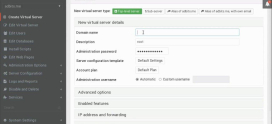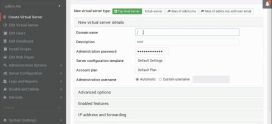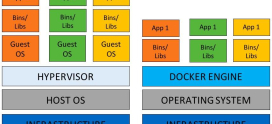
The Impact of International Hosting Locations on E-commerce Website Performance
In the fast-paced world of e-commerce, it’s a constant hustle to keep your online store up and running smoothly. You may have the perfect product, an appealing website, and a killer marketing strategy, but what if something is still holding you back? Have you ever considered the location from which your website is hosted? The truth is, where your e-commerce platform is hosted can dramatically affect its performance. You’re not alone if this idea leaves you feeling overwhelmed; many business owners are grappling with the intricacies of international hosting! The good news? Understanding this concept can lead to actionable strategies that can significantly impact your online sales.
As an online retailer, you want to provide the best possible experience to your customers, right? Slow loading times, downtime, or even security breaches can cause frustration or, worse, lead to lost sales. If you’re confused about how international hosting locations can play a role in these challenges, let’s embark on this journey together and break it down. Throughout this article, we’ll take a closer look at the multiple facets of hosting location, how it influences your website performance, and practical insights to optimize your e-commerce experience. Let’s dive in!
The Basics of Web Hosting
Before we get into the nitty-gritty of international hosting locations, it’s essential to understand what web hosting actually is. Simply put, web hosting is like renting a space for your store, except instead of a physical location, it’s a digital space on the internet.
Types of Web Hosting
- Shared Hosting: Multiple websites use the same server resources.
- VPS Hosting: A step up from shared hosting, it offers dedicated resources for each website.
- Dedicated Hosting: You get an entire server exclusively for your website.
- Cloud Hosting: Your website is hosted on a virtual server that pulls resources from a network of physical servers.
Choosing the right type of hosting is crucial, as it impacts your website’s speed, performance, and scalability.
How Hosting Location Affects Performance
The server’s geographic location can have a profound impact on how well your e-commerce site performs. Think of it this way: if your server is located in New York and your customers are primarily in London, there’s a distance barrier. Data travels less efficiently over long distances, leading to slower loading times. This can be a dealbreaker for impatient shoppers!
Latency and Load Times
Latency is the time it takes for data to travel from the server to the user’s device. The further away the server is from your customer, the longer it takes for the information to be transmitted. Studies suggest that a one-second delay in loading time can lead to a 7% reduction in conversions. That’s significant! Would you risk losing hundreds or thousands of dollars over just a second?
The Global Marketplace: Consider Your Audience
As you think about your hosting location, consider where most of your customers are based. If your main audience is in Asia, it may be wise to host your website on a server located in or near that region. On the other hand, if you have a more global reach, a hosting service that offers content delivery networks (CDNs) may be beneficial.
Content Delivery Networks (CDNs)
CDNs enhance your website’s performance by distributing copies of your site across multiple locations worldwide. This means a user can access a version of your site hosted closer to them, dramatically reducing load times. So, instead of your audience in Europe waiting for data to travel from the US, they can receive it from a local server. Talk about a win-win!
Security Considerations
When hosting internationally, security becomes a crucial aspect to think about. Different countries have varied regulations regarding data protection. This can influence how secure your customers feel when making transactions on your site. If a server is located in a country with lax security laws, this might expose sensitive information, jeopardizing your business’s credibility.
Compliance with Local Laws
Understanding the data protection laws of the hosting location is essential. If your e-commerce site has customers in Europe, for example, you must comply with the General Data Protection Regulation (GDPR). Failing to adhere to these laws can lead to fines and damage your brand’s reputation. Don’t let your hosting location put you in hot water!
Customer Support: The Hidden Power of Hosting Locations
Imagine experiencing a website glitch in the middle of a sale, with customers online. Who do you call? The availability of customer support can differ based on hosting location. If your host is located on a different continent, reaching their support team in case of an emergency can be a hassle.
Time Zones Matter
Different time zones can lead to delays in customer support response times. If your business operates during specific hours, ensure your hosting provider offers support that aligns with your operational hours. Enhanced customer support can make all the difference in maintaining a reliable online presence.
Choosing the Right Hosting Provider: A Balanced Approach
Now that we’ve discussed the various aspects, it’s time to think about choosing a hosting provider. It’s about balance: you want optimal performance, solid security, and reliable customer service. Evaluate different providers based on their geographical locations, services offered, and how well they align with your business goals.
Exploring DarazHost
One potential option in your search for the right hosting solution is DarazHost. Renowned for its robust performance and resilient support infrastructure, DarazHost makes it easy for businesses to find hosting solutions that align with their target audiences. They offer a variety of hosting types — from shared to dedicated services — making it simple for you to scale as your business grows.
Measuring Performance and Making Adjustments
After setting up your hosting solution, how do you measure its performance? Various tools can help you analyze your website’s speed, uptime, and overall user experience.
Tools and Metrics
- Google PageSpeed Insights: Offers speed analysis and optimization tips.
- Pingdom: Provides performance monitoring services for websites.
- GTmetrix: Analyzes the speed of your website and offers suggestions for improvement.
Remember, the landscape of e-commerce is ever-changing. Regularly reevaluating your hosting performance is key to staying ahead!
Future Trends in Hosting Locations
As technology evolves, so do hosting services. Here are a few trends to keep an eye on:
- Increased emphasis on green hosting solutions that focus on sustainability.
- Improved security protocols tailored to international law and data protection.
- Greater integration of AI in server management for enhanced speed and reliability.
FAQs
How does hosting location impact SEO?
The physical location of your hosting server can influence your SEO rankings. Search engines may prioritize websites that are hosted closer to the target audience, as this often results in faster load times.
Should I use a CDN for my e-commerce site?
Yes! A CDN can significantly improve site speed and reliability. It ensures your content is delivered from the nearest server to the user, reducing latency.
What are the first steps in choosing a hosting provider?
Start by assessing your business needs, including expected traffic, budget, and necessary features like security and support. Compare providers like DarazHost to find a good fit.
Can hosting in multiple locations benefit my online store?
Absolutely! Using multiple hosting locations allows you to have a more resilient infrastructure and better performance for international customers.
How often should I evaluate my website performance?
It’s advisable to evaluate your website performance at least quarterly. Regular assessments can help you identify areas for improvement and ensure optimal functionality as your business scales and technology evolves.









